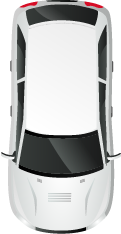






In the time it takes you to finish this paragraph, Google will perform 504,000 internet searches.
Out of 1.93 billion websites, 10 will appear on the front page of Google search results, and those 10 will receive 95% of internet traffic.
Since the dawn of search engines, the owners of websites have developed a series of systems and tactics to help us score that number one slot in a search query. That number one slot alone will receive 33% of search traffic, which means a whole lot of revenue. Every website and small business had the same question: how can I help Google find me?
From this simple question the art and science of SEO was born.
To win the race to number one, you need to optimize your website for SEO (search engine optimization). In brief, SEO is a conceptual system of best practices applied in website design, web development, and online marketing. SEO is the art and science of how to win that race for the number-one slot.
In our race for the number-one slot, many of us focus on the "search engine" part of SEO and miss the fundamental goal of this valuable digital skill. At its core, SEO is about optimizing for the best user experience. Bad SEO (or lack of any) is the reason why your gorgeous, tricked-out website loaded with all the right keywords and all the right tags might still never see the front page.
Since organic search traffic delivers a whopping 40% of online and in-person revenue, it's not hard to imagine how something as simple as your position in search results can translate to tremendous boosts in profit.
To nail that first-place slot, your race car needs to do more than look sleek. If your race car runs on a lawnmower engine, it’s not going to zoom past the competition. And what good are aesthetics if you can’t even move past the starting line?
Just like an engine needs to be powerful to launch you to the end of a race, your website’s backend structure needs to be optimized for speed. Having a sleek-looking website doesn’t mean Google will decide it makes the cut (which is, after all the entire point). It needs to be well-organized, and it needs to be fast.
When your page speed is slow, your bounce rate is higher. In fact, 53% of mobile users will leave a website if it takes longer than 3 seconds to load. For every extra 2 seconds a website takes to load, the average bounce rate increases by 32%. This tells Google your website isn’t a good source.
Not only does slow loading time hurt your website’s usability, but it hurts your indexation. When your page speed is slow, Googlebot doesn’t have time to crawl all the pages on your website. This hurts your indexation and your ranking in search results.
You now have gorgeous website optimized for speed, you sell a great product, and you’re ready to go. After optimizing your website for speed, your racecar is doing better. Surely you’re on your way to number one and the riches it entails. You fathom life as a very rich pirate now that 33% of search traffic will go to your business. Maybe you will expand. You are the king of the castle.
As both an aspiring race car driver and SEO strategist, you know that if you’re going to get somewhere, you need to be able to steer in that direction. To get to the number-one slot, you need to sit down and compile a list of keywords relevant to your brand and a strategy for making those keywords easily visible to Google on your site.
By having the right keywords in the right places, in the right quantities, your website will be easy for your customers to find on the internet, and genuinely useful to those customers once they do.
Not one to be dissuaded, you’re finally ready to nail first place. As your race car picks up speed, you’re convinced you’ve finally done it. But just as your confident the throne will be yours at last, your race car starts to struggle yet again.
Just like professional race car drivers take pit stops to rotate their tires, you need to make regular website updates to keep your website fresh and up-to-date as a digital representation of your business that reflects your strategic growth.
Search engines look for what’s new on the internet. This means the more frequently you update your website, the more frequently your site gets indexed. If you update your website with fresh, quality content packed with relevant keywords, this means more opportunities to climb in that search results list.
With your backend website optimized for speed, the right keyword strategy, and regular site updates, your racecar is more powerful than ever.
It looks like you’re finally on your way to first place! You’re ecstatic, but there’s only one thing missing. You forgot to invite an audience to watch you cross the finish line.
The final step is called external SEO, and it’s about being part of the internet community. As your search ranking climbs higher and higher, you connect with other sources and trusted high-traffic websites to establish a network of legitimacy surrounding your site. In other words, you connect with people that Google already trusts whose references verify that you’re a trustworthy source.
As your optimized website continued to provide quality experiences for internet users, other internet users and websites create backlinks to your website from their high-traffic domains, boosting your SEO ranking even further.
Congratulations! You crossed the finish line. Anyone can master SEO with the right research and hard work. Your website can help you achieve your business goals, and now that you are practicing the right SEO strategy your website will become even more valuable.
Now, just like any great racer, you need to repeat the SEO process again with new keywords to focus on and implement even more performance improvements. Remember the SEO race is a circuit race, when you win one heat you learn, grow “faster”, and move onto the next racetrack with even more skill and knowledge.